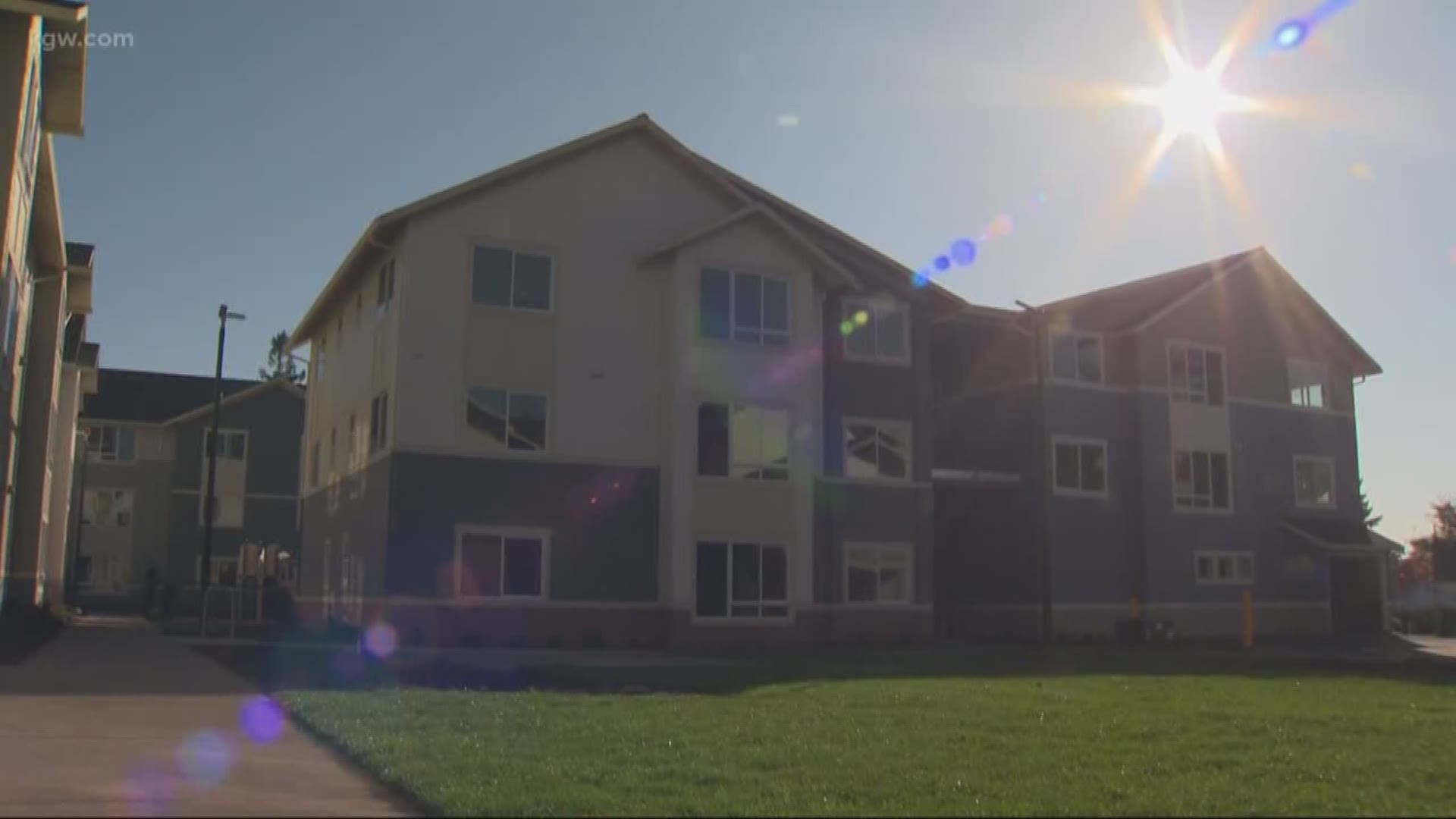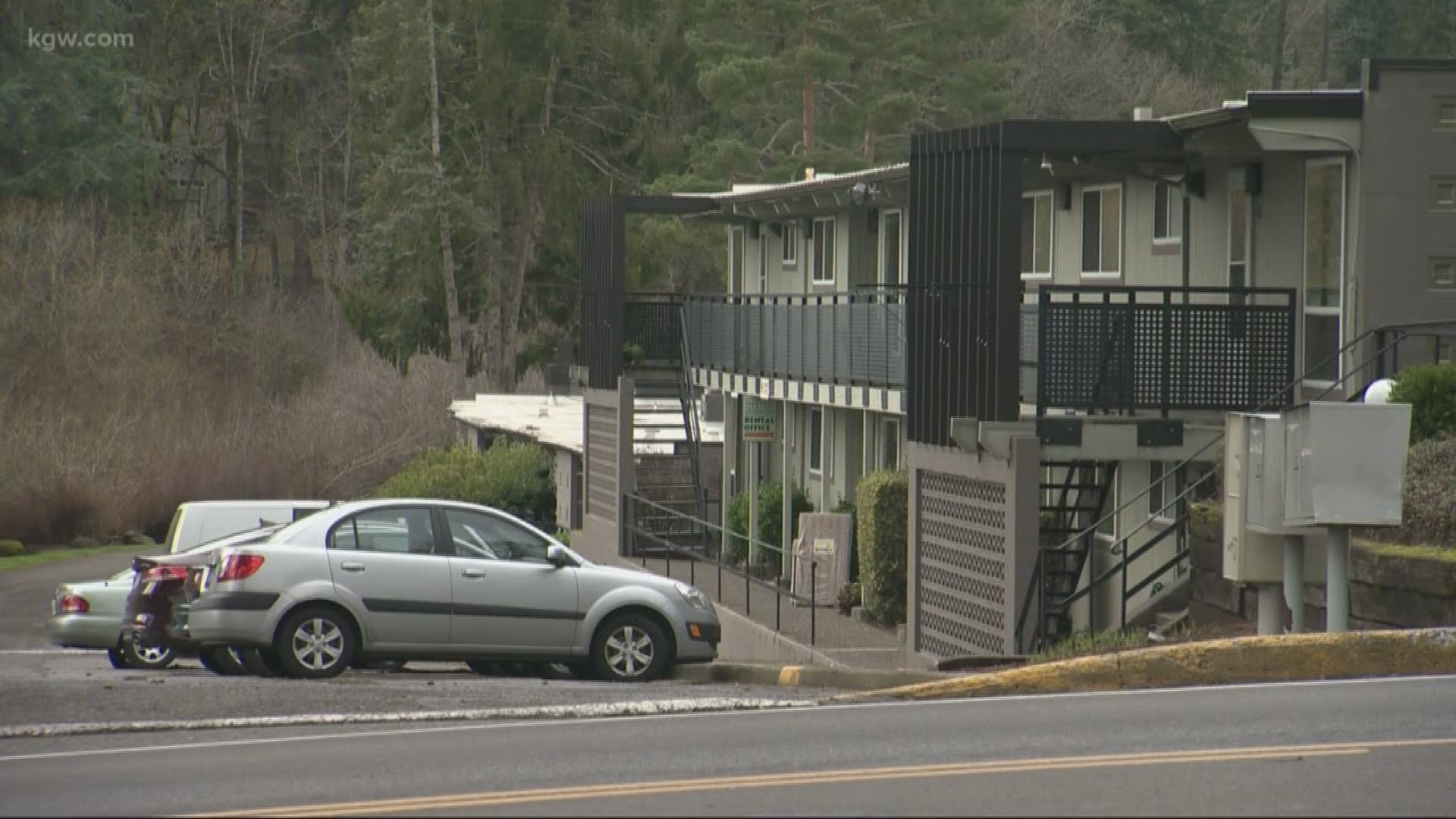SALEM, Oregon — Faced with a housing shortage and skyrocketing rents, Oregon has become the first state to impose mandatory rent controls, with Gov. Kate Brown putting the final signature on a measure establishing tenant protections that swiftly moved through the Legislature.
Brown signed Senate Bill 608 on Thursday. It had previously passed the Democratically-controlled state House by a vote of 35 to 25 after passing the Senate.
"This is a groundbreaking piece of legislation as we are the first state in the nation to enact this level of protection for our renters," said Brown. "The bill is a critical tool for stabilizing the rental market throughout the state of Oregon."
Under the bill, landlords would only be allowed to raise rent a limited amount once per year.
Many residents have testified in favor of the legislation, describing anxiety and hardship as they face higher rents. Some have gone up by as much as almost 100 percent — forcing people to move, stay with friends or even live in their vehicles.
The town of Medford recently authorized churches to offer car camping for the homeless on their parking lots. Cities across the West Coast are struggling with soaring housing prices and a growing homelessness problem.
The House committee rejected a proposed amendment that would have exempted cities with populations under 150,000 and another that would have delayed the measure from becoming law until Jan. 1, 2020, instead of immediately after Brown signs it.
"We've waited too long as it is, and there are too many people living in tents. It is an emergency," said Rep. Tawna Sanchez, a Portland Democrat and member of the House Committee on Human Services and Housing that endorsed the legislation.
Oregon's housing shortage is getting worse as people keep moving to the state, lured by its forests, mountains, coastline, relaxed lifestyle and job opportunities. Oregon ranked second to Vermont as the top moving destination in 2018, according to a study by United Van Lines, the largest U.S. household goods mover.
Lawmakers noted Oregon will be a pioneer in statewide rent control if the measure becomes law. New York has a statewide rent control law but cities can choose whether to participate.
California restricts the ability of cities to impose rent control. Last November, voters defeated a ballot initiative that would have overturned that law.
"Homelessness and affordability have no boundaries," said Democratic Rep. Mark Meek. "We're going to be leading the nation now with this legislation."
Oregon's measure prohibits landlords from terminating month-to-month leases without cause after 12 months of occupancy and limits rent hikes to once per year. Those increases are limited to 7 percent above the annual change in the consumer price index.
Landlords can terminate tenancies only with 90 days' written notice and payment of one month's rent, with exemptions in some cases. A landlord can refuse to renew a fixed-term lease if the tenant receives three lease violation warnings within 12 months and the landlord gives 90 days' notice.
The Oregon Rental Housing Association, representing small-scale landlords, said the measure protects good tenants while not encouraging landlords to leave the business and invest their money elsewhere.
"I believe most landlords will be able to adapt and operate within the parameters," said Jim Straub, the group's legislative director.
Eric Lint, who lives in the popular mountain town of Bend, urged lawmakers to pass the protections because of skyrocketing rents. The medical lab where he works is chronically understaffed because potential hires say there is a lack of affordable housing.
Lint said his hourly pay has risen 8 percent over five years. Meanwhile, his rent has increased by 66 percent. He plans to move away in the fall but did not say where in his testimony.
Anna Pena, a senior at the University of Oregon in Eugene who works full time, described living in a house smaller than 1,200 square feet with five roommates and spending over half her income on rent that then increased by 15 percent.
"Ultimately, housing insecurity has been one of the biggest setbacks for my education and personal health," she said.
Sen. Tim Knopp, a Republican from Bend, said before he voted against the measure last week that it does not address the housing supply issue.
Another measure aiming to deal with that issue would require cities and counties to allow duplexes and some higher-density housing in lands zoned for single-family homes.
House Speaker Tina Kotek, a Democrat, said 30,000 housing units must be built per year to meet the state's current housing deficit and to build for the future as more people move to Oregon.
The Multifamily NW issued the following statement:
“Now that statewide rent control is set to become law, we expect the state of Oregon to start monitoring the impact. We also expect lawmakers to stay steady on the 7 percent cap. And we expect lawmakers to turn their attention now to evidence-based ways to make housing more affordable. That means building more missing middle housing and investing in voucher programs for those who need it,” said Deborah Imse, executive director of MultiFamily NW, which represents individuals, families, and businesses that provide more than 250,000 rental homes throughout Oregon.
Robert Pinnegar, CAE, president and ceo of the National Apartment Association issued the following statement:
“Today’s regrettable action by the Oregon State House of Representatives on SB 608 will lead to unintended, but pre-eminently predictable negative consequences for housing affordability in the state. Rather than focusing on the onerous regulatory environment that constricts the diversity of housing needed to meet the surging demand for rental housing, Oregon’s public officials chose to slide backward by enacting a failed policy that has historically proven to hurts residents and housing supply alike. The National Apartment Association and the National Multifamily Housing Council will continue to promote sustainable, responsible solutions that lead to more apartment construction, and oppose reckless and ill-advised policy approaches like rent control.”
Doug Bibby, president of the National Multifamily Housing Council, a Washington, D.C.-based association representing the apartment industry said:
“There is no doubt that housing affordability is a crisis in Oregon. However, SB 608 will worsen the imbalance between housing supply and demand by allowing for rent control across the state. While the intent of rent control laws is to assist lower-income populations, history has shown that rent control exacerbates shortages, makes it harder for apartment owners to make upgrades and disproportionally benefits higher-income households. That is why Oregon and a majority of other states have laws in place that explicitly prohibit local municipalities from implementing rent control laws. Reversing course is counterproductive and will not solve the crisis. Oregon lawmakers should focus on a holistic solution that encourages more housing supply, facilitates public-private partnerships to tackle many of the existing barriers, and increases direct assistance to renters.”
Follow Andrew Selsky on Twitter at https://twitter.com/andrewselsky



